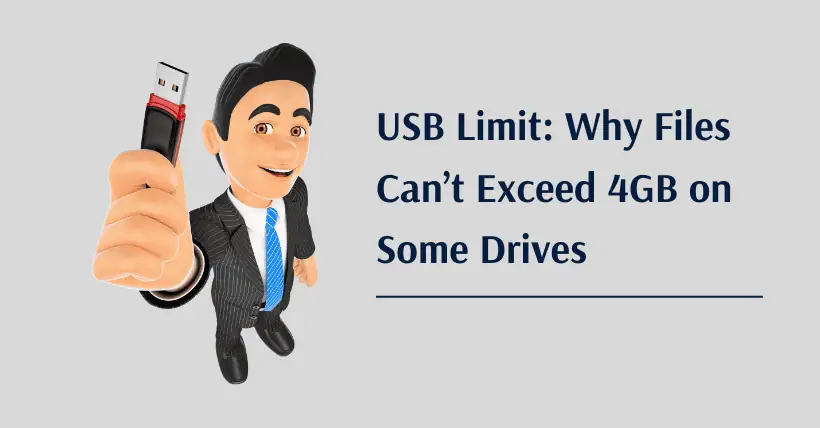The 4GB file size limit on USB drives is due to the limitations of the FAT32 file system.
When Microsoft software engineers wrote the code for FAT (File Allocation Table) in 1977, they had no idea that, in the future, computers would need to handle files larger than 4GB. Back then, most files were measured in kilobytes (KB), and anything larger than 100KB was considered large. So, setting the file size limit at 4GB was a futuristic decision at the time. In fact, FAT32 remained sufficient for consumer-level needs until about 2010.
1. FAT32 Limitations and the Introduction of NTFS
By the 1990s, Microsoft recognized the limitations of FAT32 and began developing new file systems, including exFAT and NTFS. However, FAT32 had become so popular and widely used that almost all devices of that time—USB drives, MP3 players, hard drives—relied on it. It wasn’t until the release of Windows XP that NTFS started to gain broader adoption, eventually becoming one of the most commonly used file systems today.
2. NTFS and Its Own Limitations
While NTFS is much more capable than FAT32, it also has its own limitations. It is primarily used on Windows systems and supports a partition size limit of 256TB and a single file size limit of 256TB. For now, these limits are more than adequate for most users, but as technology evolves, these numbers may become insufficient.
For instance, in the future, we might see situations where even a 1-minute video could take up 1TB of space. When that time comes, NTFS may also become outdated, just like FAT32.

Disclaimer:
- This channel does not make any representations or warranties regarding the availability, accuracy, timeliness, effectiveness, or completeness of any information posted. It hereby disclaims any liability or consequences arising from the use of the information.
- This channel is non-commercial and non-profit. The re-posted content does not signify endorsement of its views or responsibility for its authenticity. It does not intend to constitute any other guidance. This channel is not liable for any inaccuracies or errors in the re-posted or published information, directly or indirectly.
- Some data, materials, text, images, etc., used in this channel are sourced from the internet, and all reposts are duly credited to their sources. If you discover any work that infringes on your intellectual property rights or personal legal interests, please contact us, and we will promptly modify or remove it.



